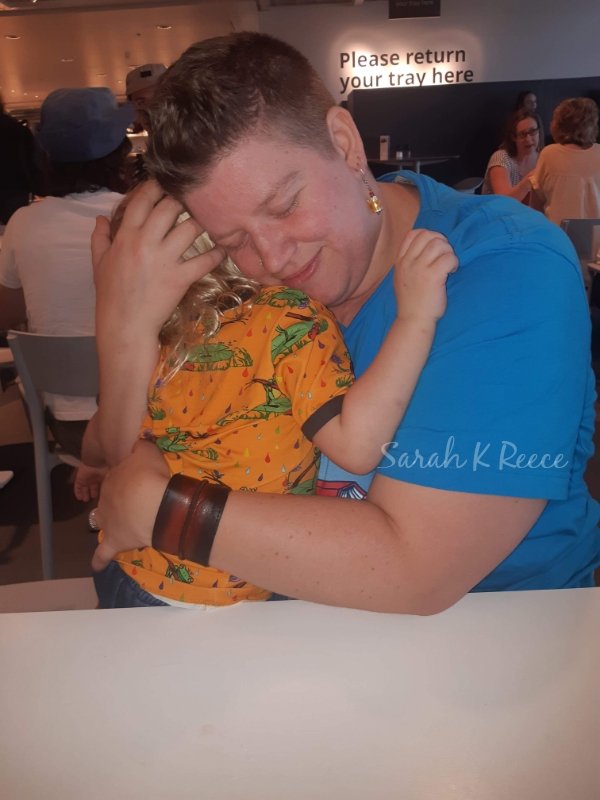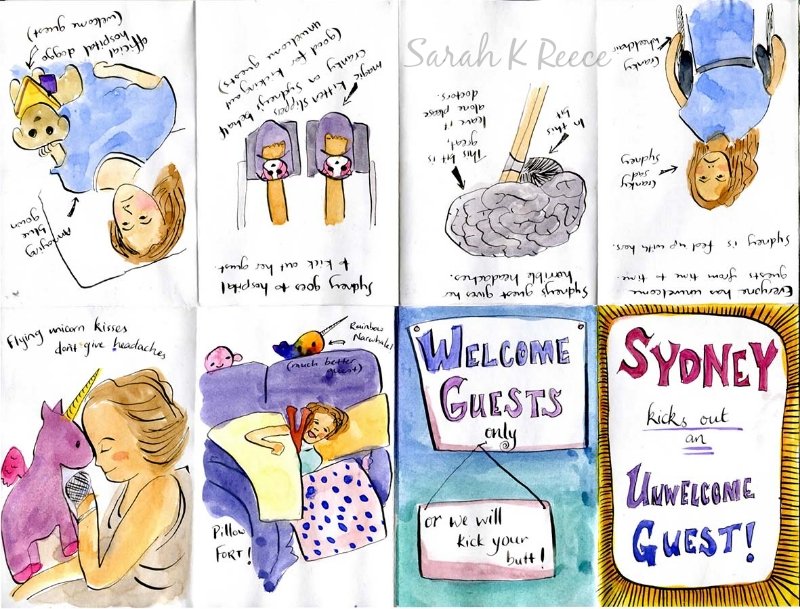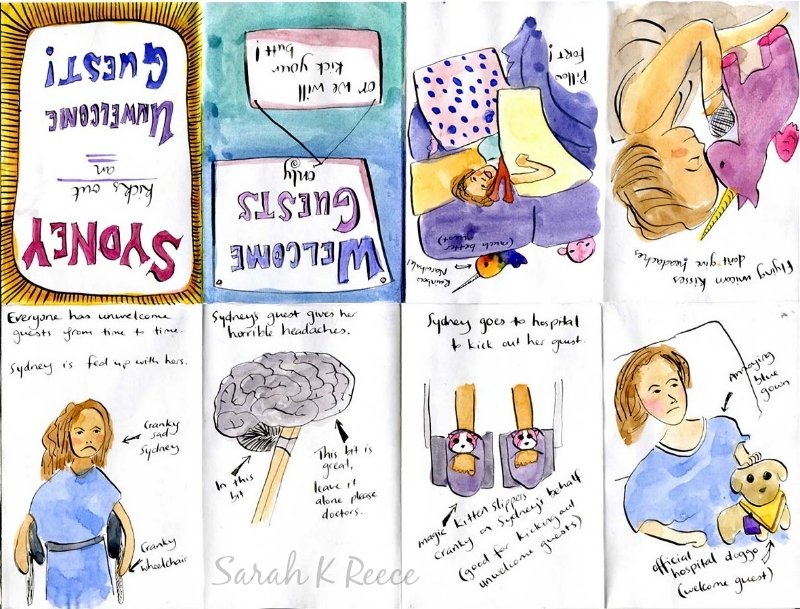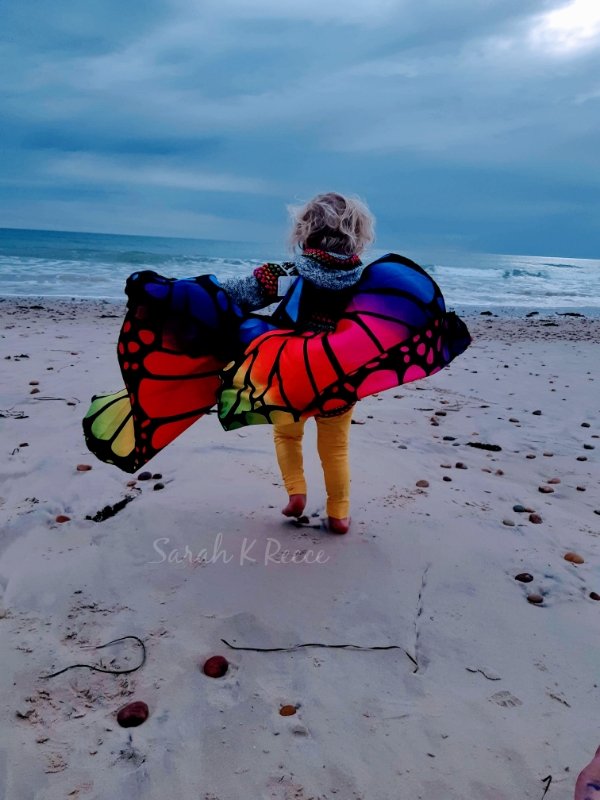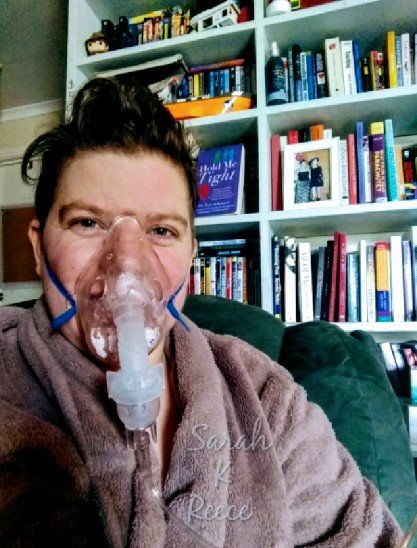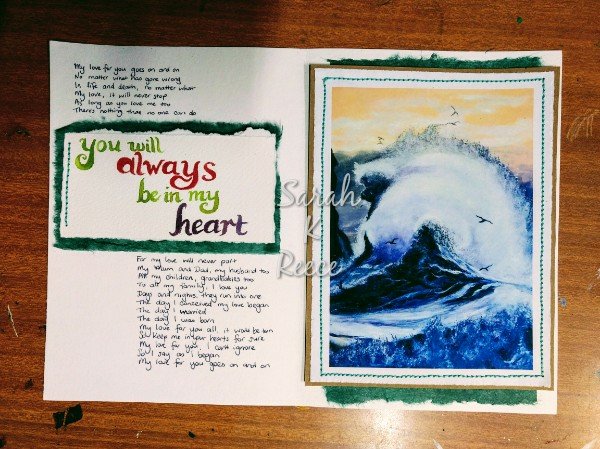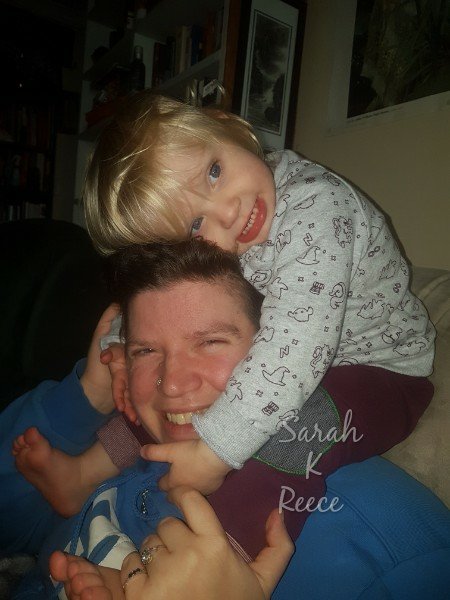Every lockdown I hear about folks with psycho social disabilities being abandoned by their support providers. Welcome to an NDIS that is largely informed by people with a disability background, with mental health as a last minute tack on. Yes, maintaining supports for people with high physical needs is obviously essential – people who need support to transition out of bed into their wheelchair, or assisted showering or feeding must be able to access their services. It may be less obvious, but it is just as essential to maintain support for people with high mental health needs! Lockdowns are a highly stressful event with well documented mental health impacts. Our most vulnerable people are of course going to feel this impact even more. I am deeply frustrated by the lack of recognition of how real these needs are and how serious the outcomes can be for people.
As a small provider of support teams I recognise there’s a huge logistical challenge in lockdowns. It’s tempting to ignore all but the most obvious care needs. It’s critically important to make sure mental health is part of this. Here’s a quick run of the process I’ve developed for my team:
Risk Assessments
Each client is assigned to a low, medium, or high risk category for that lockdown. These are specific to the needs of the client for each lockdown, and not a static unchanging category. Low risk clients are those who are well prepared and resourced and highly independent or with excellent in home supports. Children with parents at home who have organised all the needed resources, adults who have excellent independent living skills and only need support with transport or gardening or other non essential tasks are examples of low risk. This assessment is based on contacting each client and their primary support worker, if both agree all is well then halting all in person services for that client is likely the safest response. Continuing in person service provision for these folks will put them at far more risk than halting services. Some low or moderate risk clients will still need supports that can be provided online or over the phone, for example assistance to purchase online supplies, or help to access covid testing if needed.
High risk clients have vulnerable health or mental health needs and/or living circumstances that mean they will need in person supports during the lockdown. Examples of high needs from a mental health perspective include clients who will not eat without support, those who struggle with paranoia or persecution type delusions, and those with high sensitivity to loneliness or perceived abandonment. Just because someone has the physical capacity to feed themselves does not mean they will be able to do this under stress. For these clients a personal safety plan is created and shared with their team. A template of my plans is available here, you are welcome to use this for your own circumstances, it suggests opportunities to engage some of the key mental health impacts of lockdowns according to the current research.
Reduce risk of client to client transmission
Support workers who will be needed for in person support are assigned to one client each. Where possible it’s best practice to try and prevent one worker travelling between multiple clients. Bear in mind that some support workers will also be carers and travelling to support family or others with high care needs in their personal time. Clients with high needs will need a small dedicated team to limit risk of losing staff due to illness or hotspot exposure. Other support workers can remain in reserve to replace any face to face staff who have to isolate themselves. Support workers should attempt to minimise needless transport and perform necessary travel on behalf of vulnerable participants. It’s also very important to ensure participants are receiving updated health advice in a format they can understand – this may be a plain English print out for their fridge, or a morning phone call to check in.
If you have mental health challenges or a trauma history or are supporting someone who does here are a few key support needs and considerations I have found helpful:
Food challenges
Most people with issues around food struggle more during lockdown. There’s many ways to assist depending on what the challenges are and how well you know the person’s specific needs. If they have helpful support from a dietitian or GP they may be able to inform this process A few options might be: shop for supplies of that person’s safe foods, the things they find easiest to eat even when they are stressed. This might not be varied or nutritious but all food getting in and staying down is a positive thing when restriction is an issue. Meal replacement shakes/drinks/supplements may be an important resource. Shared meals can be helpful for those who find social support useful. Distractions in the form of movies, puzzles, conversations, and board games can assist. Company for an hour following meals can assist with preventing purging. Meal planning can support those with lower capacity to plan and manage tasks. Eating to a schedule of 3 meals 3 snacks can assist those who struggle with bingeing or restricting (it sounds counter-intuitive but regular food is a very strong preventative for bingeing). Having meals provided or portioned can assist those who struggle with that aspect. Obviously some of these approaches will be unsuitable or even harmful for some people – tailored support is essential for good outcomes.
Anxiety/Paranoia/Psychosis
Folks who struggle with these issues are likely to have increased difficulty during lockdowns. Anxiety generalises easily so people may express fears about the virus and their loved ones through other seemingly irrational fears or get locked on to concerns that compromise their safety or provision. For example some people who need personal support in showers may suddenly refuse this, or be unable to cope with showering altogether. Issues with neighbours may flare up into huge problems, minor conflicts with family or housemates may become unmanageable. Phobias can become so intense people can’t function, and if paranoia increases too much people may come to fear and reject their team, refusing medical care or food or support.
It’s important not to get too caught up in the expression of fear, but to recognise this is not intentional, and to engage the underlying needs as best as possible. Yes the person may be talking crazy sounding things about being poisoned by the neighbours, but arguing about this is likely to leave them feeling more alone and unsupported, and even afraid that you might be part of that plot. Someone who has become so phobic of birds the house has to stay completely closed up in case they see one through a window may well know on some level that this is irrational, but the brain link to their fight/flight response isn’t something they can think their way out of, and adding shame and embarrassment to the situation rarely helps. The real needs are often about control, territory, and connection. When people feel unsafe they experience and express this in a variety of ways. Any small things that can restore or preserve control, territory and connection can reduce the distress. The sad thing about experiences like psychosis is that they often impact the very things people need to be able to manage them safely, so it falls to us to be aware of this and try to work around it.
Meeting needs for control can be as simple as asking the person to help draft their own safety plan, to decide if they want to cancel the GP or change the appt to telehealth, to invite them to choose a meal plan you can help them shop for. For people with traumatic histories around psychiatric inpatient experiences or residential care, anything that helps their home still feel like a home and not like a formal care environment can help reduce triggers. Be mindful that sometimes simple things like our communication books or weekly roster shouldn’t be on display but digital because of that history. For other people having access to the communication book will help them feel more in control. It’s individual.
This links into territory too, who’s home is this and how safe does this person feel in it? Do they have retreat spots where no one is allowed to disturb them? Are there issues with housemates? Can they change things around to help them feel more in control of the environment? This might as simple as asking them where PPE like masks and sanitiser are kept, or helping them to create a quiet nook in their bedroom where they can hide out and use headphones when things are a bit overwhelming. Some more thoughts about territory here.
Connection is vital, we don’t endorse phobias or delusions as real to us but we do endorse them as very, very real experiences for our clients. We may not see what they are seeing or sensing but they absolutely do, and they have to navigate all the feelings that come with that experience. Validation is incredibly important, as is understanding that people trying to reassure someone their phobia isn’t really harmful, or delusion isn’t real, is actually in it’s own way very confronting and isolating. Read more about my experiences with psychosis here. Maintaining the same team wherever possible, ensuring the team is large enough to cope with a number of people being removed and required to isolate, and wherever possible using a co-design approach to all changes, introductions of new people, new routines, and so on can all contribute to emotional stability and reduced distress.
Self harm
Are there appropriate medical supplies in the home for the clients preferred methods of self harm (burn cream/antiseptic for burns, butterfly stitches for cuts, etc)? Is there access to a local nurse or GP who can assist with any more serious injuries? Mental health informed and non-judgmental vastly preferred! Will this person be safer if access to risky supplies is prevented, or safer if they are not searching for new unfamiliar materials to self harm with? Eg if there are parents providing supervision then reducing access can be very helpful – parents may for example lock away knives. If there is no supervision then reducing access can be risky – people searching for new tools can use items that are far more dangerous. Does this person have alternative options for managing self harm impulses? For example, a grounding kit, ink not blood, Dialectical Behavioral Therapy skills, safe people to contact? Are their support workers and housemates compassionate and informed about self harm, or stressed, confused, scared, or angry? Do they need more information and training? A place to start might be My experience of self harm. We need compassionate and regulated people in support roles, not overwhelmed, horrified, and confused folks. This also goes for our approach to ourselves when we are struggling with these issues.
Confusion
For folks with severe dissociation, dementia, psychosis, and various other challenges the higher stress and disruption of the usual routines can lead to high levels of confusion. This might mean forgetting crucial information, mixing up important lockdown guidelines, missing essential appointments, taking medications inappropriately my mistake, and other errors that can have huge implications. People who are usually able to drive might not be safe to, or those who independently manage their medications might need more scaffolding for the lockdown. Draw on resources from supporting clients with dementia such as whiteboards, alarms, reminders, checklists, and countdown clocks.
Make sure you are checking for higher needs that might be unintentionally concealed, or intentionally hidden by embarrassed clients or those afraid that higher supports might never be reduced down the track. Short periods of more intensive support can be the difference between riding out a tough time and full breakdowns with serious consequences and sometimes much more long term loss of capacity. Again, good relationships, a high sense of safety, and clear communication assist this process.
Insomnia/hypersomnia
Sleep disturbances are really common during times of stress. The latter is disruptive but the former, like food stress, needs to be regarded as a warning sign. For many people it will be unpleasant but reasonably benign, and resolve itself. For some it will become a major problem that can endure over many years – particularly for those with trauma issues that cause hypervigilence. A period of severe sleep deprivation can have a catastrophic impact on people’s cognition, behaviour, and health. People may be unsafe to drive, make judgement errors, experience various forms of dissociation, have disrupted emotional regulation, and have loss of physical coordination similar to being drunk. This can result in a higher rate of home accidents and injuries, poor caregiving and child supervision, self harm and abusive behaviour. Sleep deprivation is a common precursor to episodes of mania, depression, and psychosis for those vulnerable.
When sleep issues are being triggered by a lack of sense of safety, I’ve found it more successful to address that as a priority over ‘sleep hygiene’ responses. This might mean supporting someone to change their bedroom around, increase mess in their home!, or sleep on the couch, to read books over the phone to help someone’s hypervigilent nervous system to calm down, or to help them build a nest in the cupboard to cocoon in.
Depression
For those with severe depression, functioning can be profoundly impacted. Scaffolding can make a major impact for someone in a bad episode who can’t get themselves out of bed, into the shower, or attending to admin and self care needs. Phone calls, prompts, help with routines, alarm reminders, friendly check ins, and visits to help coax folks back into routines and help reduce the spiral of shame, isolation, and overwhelm is really helpful. Normalising the response and reducing the impacts of the initial loss of function can prevent the development of a viscious cycle of neglected tasks causing further stress that increases the depression. There’s many approaches and treatments for depression which is far beyond the scope of this article, but a couple of things to keep in mind are: depression is a normal response to highly stressful life circumstances, depression becomes self reinforcing when it destroys our sense of self worth and connection to our community, and depression can respond well to opportunities to explore and grieve losses, choosing to focus on our values and what gives our lives meaning, and support that helps us still see ourselves as useful, valued, and capable.
Addictions
Folks with addictions are at high risk during lockdowns. It can be counter-intuitive but there’s very real research behind odd sounding decisions such as keeping bottle shops open during lockdowns. Withdrawal without support can be dangerous or for some folks even fatal. Withdrawal can also increase other risks such as domestic violence. So as strange as it may sound, this is actually about risk management and harm minimisation. Do not use a lockdown as an excuse to try to make a person give up or cut down on their addictions.
Safety at Home
Not everyone is safe in their home. Both the environment and the people can present huge risks and lockdown can be a pressure cooker that exacerbates those. It’s crucial not to make assumptions about the home. It’s been a long standing issue that there are limited or sometimes no homelessness support services for people with disabilities, based on a naive assumption that people with disabilities are always well cared for. The reality is that people with some forms of disabilities are simply more likely to be abused in situations and homes they can’t leave. For other forms such as mental illness we’re more likely than non disabled folks to wind up homeless or in prison. In all instances we’re at higher risk of being harmed. We are also sometimes the folks who harm others.
One of the biggest privileges of being a carer or disability support worker (carers are unpaid people in our personal lives, support workers are staff paid to be there) is our high level of access to people’s lives. Where a psychologist has to make sense of a person’s circumstances in an hour a fortnight, filtered through that person’s perspectives, or a GP has to understand at times very complex interplays in health outcomes for patients in 10 minutes a month, we have vastly more access. When I am working with someone in their home 10 hours a week for 6 months, I have a depth of knowledge about them and their circumstances. All that knowledge can be utilised to create highly individualised responses to challenges such as lockdowns. This is where the NDIS approach excels. Where it tends to fall down is the lack of utilising that knowledge beyond one carer or worker. Without a team who make time to pair up the front line worker knowledge with management bigger picture systems/public health/service design knowledge we get a disconnect. Management make calls that make sense in a big picture but can so utterly fail to fit an individual client it can do harm. And excellent front line staff can get caught between their personal knowledge and the guidelines of their work, or left to fend for themselves without the team support needed to get good sustainable outcomes in complex and intense situations.
One of the principles behind all these approaches is called trauma informed care and they apply both to those of us with trauma histories and those without. They are also universal in that they are just as important to keep in mind for staff, families, carers, and the clients. Sleep deprived staff can’t be their best, and some staff are in highly vulnerable and challenging circumstances with uncertain work hours, high responsibilities at home, and loss of income during lockdowns. Excellent care of people with disabilities doesn’t happen in contexts of burnt out carers and exploited staff. Understanding the risks of this kind of work, which are largely relational/emotional and rarely well addressed by OHS&W myopic focus on physical health risks, can help us to identify and address the things that cause common issues for excellent staff such as struggling to switch off after work when they are worried about a client, feeling unheard and unsupported when they have concerns, working outside of paid hours and outside of policy guidelines alone to meet the genuine needs of clients they are worried about, and being abused by clients who have control over their work hours or firing them. Promoting resilience is about understanding these contexts and being able to tailor services to support appropriate self care for clients and staff. A few thoughts about that in Self care and a myth of crisis mode, and crisis mode and being under pressure.
Hope there’s some helpful food for thought here for you or the folks you care for. Lockdowns don’t impact us all equally, they have a far greater impact on some of our most vulnerable people, and those of us with mental health issues are commonly being overlooked in rushed and inadequate risk assessments. This is a horrible reflection of poor planning and lack of familiarity with mental health and it causes needless distress and risks to many people. If you are in that situation I hope you feel able to advocate for yourself or your client or loved one, and please do reach out beyond your service providers if they have shut down services and you are in need. There are online groups on social media such as facebook where people find independent support workers, and a host of online platforms such as Mable. If you are in any kind of online support group associated with your disability many of those people will have a lot of experience and service provider recommendations. Sometimes you just need a small rejig of your current services to include a good lockdown plan and a team leader who can coordinate staff for you, or a little bit of training around trauma informed care or whatever your specific needs are. Mental illness shouldn’t be the tack on to the end of the disability approach, the impacts are just as real and the needs are just as valid.
Be safe and best wishes.




